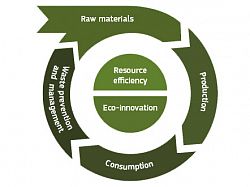

The UK will begin to implement the Circular Economy Package (CEP) on 1 October 2020.
Amendments contained in the Waste (Circular Economy) (Amendment) Regulations SI 2020/904 will see the CEP implemented in England and Wales, and partially in Scotland and Northern Ireland.
The devolved Governments in Scotland and Northern Ireland will be introducing separate legislation to implement the CEP in those countries.
Legislation affected
The amendments made by the Waste (Circular Economy) (Amendment) Regulations SI 2020/904 include the following legislation:
What is the Circular Economy Package?
The CEP is mainly about increasing resource efficiency, aiming to make sure fewer resources are sent to landfill when they could be reused or recycled instead. Moving towards a circular economy will result in an optimisation of resources and also increase a product's life. Some companies across the UK have already begun to implement their own circular economy policies which focus on bringing resources back into the company once a product has reached its end-of-life so that parts can be reused or repurposed for new products.
Now the CEP is being fully introduced in law via a series of minor and technical amendments. Although the legislative framework for the CEP lies in European Law, the UK is still fully committed to ensure it is properly implemented in its own domestic laws. The amendments aim to:
The CEP amendments are designed to align with other existing strategies, such as the 25 Year Environment Plan, the Clean Growth Strategy and specific circular economy and waste strategies and policies developed in Scotland, Wales and Northern Ireland.